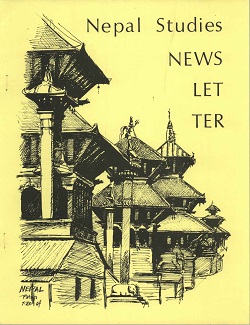Author Biography
Sarah Rasmussen (BA, Anthropology) was a 2014-2015 Fulbright Research Fellow in Nepal. She is currently a research assistant in the Epidemiology Research Group for Organ Transplantation at the Johns Hopkins University School of Medicine.
Pragya Paneru (BS, Nursing; MA, Sociology) is a former ICU nurse at the Human Organ Transplant Center, Bhaktapur, Nepal. She is currently pursuing an MPH from B.P. Koirala Institute of Health Sciences, Dharan, Nepal.
Kalpana Shrestha (MD) is a senior consultant and head of the Department of Nephrology at the Human Organ Transplant Center, Bhaktapur Nepal and the Aarogya Foundation.
Pukar Chandra Shrestha (MBBS, MS, MRCS) is a Kidney Transplant and General Surgeon; the Executive Director of the Human Organ Transplant Center, Bhaktapur, Nepal; and General Secretary of the Aarogya Foundation.
Abstract
Women in Nepal are less likely to receive proper, high quality medical care than their male relatives. Live-donor kidney transplantation provides a compelling example of such disparities, as 84% of recipients are male, 75% of donors are female and most kidneys are transferred from mother to son and from wife to husband. In the case of transplantation, women are not just denied healthcare, they are also responsible for the health of their male kin. Based on semi-structured ethnographic interviews with transplant patients, organ donors, dialysis patients and relatives, this paper elaborates on the social and economic factors that have created an extreme gender bias in transplantation. We argue that women, whose livelihoods largely depend on their husbands, donate kidneys out of self-protection and a sense of duty. Conversely, men receive kidneys but rarely donate them to women, because the health of men is a more productive economic investment than the health of women. We reject the notion that wives are directly coerced or pressured into donating kidneys to their husbands. Rather, we argue that female kidney donors make thoughtful, independent decisions that serve their best interests, and allow them to assert some control over their lives. It is, however, Nepal’s patriarchal society that both necessitates and limits such assertions of power.
Acknowledgements
The authors would like to thank Fulbright USEF-Nepal for funding this research. Special thanks are due to Nabina Shrestha, Geeta Manandhar, Arjun Guneratne, Ron Barrett, Laurie Vasily and the staff at HOTC, Aarogya Foundation and the Epidemiology Research Group in Organ Transplantation at Johns Hopkins for their tremendous support of this project. Thank you to our anonymous reviewers for their constructive feedback on the manuscript. Lastly, we are indebted to the organ donors, patients, and families that so generously gave their time and shared their stories.
Creative Commons License

This work is licensed under a Creative Commons Attribution 4.0 License.
Recommended Citation
Rasmussen, Sarah; Paneru, Pragya; Shrestha, Kalpana; and Shrestha, Pukar C.. 2016. Gender Bias and Organ Transplantation in Nepal. HIMALAYA 36(2).
Available at:
https://digitalcommons.macalester.edu/himalaya/vol36/iss2/8


